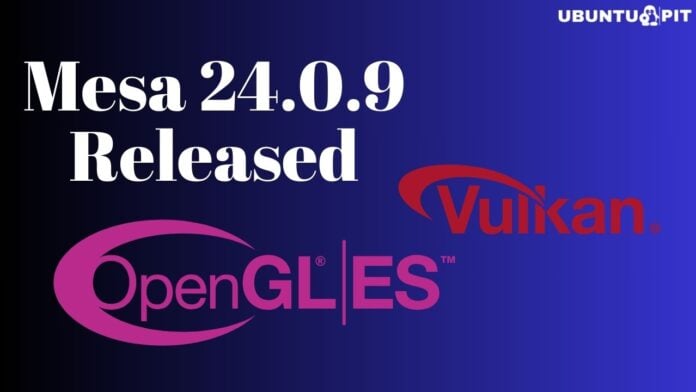Mesa3d, or Mesa 3D Graphics Library, is an open-source implementation of various Graphics APIs like vulkan, OpenGL ES, VDPAU, OpenCL, OpenMAX, and many more. It helps modern computers to simulate and render interactive 3D environments using OpenGL specification. In today’s world, computers come with high-end GPUs, and to use those GPUs in hardware acceleration, mesa’s 3d libraries are used with device-specific drivers.
Mesa3d ties with various other open-source projects like Wayland, X.org, and Direct Rendering Infrastructure. This integration helps users use OpenGL support for Linux, FreeBSD, and other OSs.
Recently, mesa3d 24.0.9 has been released with various bug fixes that were found on the previous version 24.0.8 release.
Mesa3d 24.0.9 comes with OpenGL 4.6 API, but this version will only be reported by glGetString(GL_VERSION) or glGetIntegerv(GL_MAJOR_VERSION) / glGetIntegerv(GL_MINOR_VERSION) while using device-specific drivers.
OpenGL 4.6 offers various features, but some drivers may not support all of them. In that case, OpenGL 4.6 will only be used if requested at context creation. If the drivers don’t support all the features from OpenGL 4.6, then the requested context may use or report a lower version.
This Release, mesa 24.0.9, has also come with Vulkan 1.3 API. However, this version reported by apiVersion property of the VkPhysicalDeviceProperties stuck based on the specific driver used.
There are some other bug fixes regarding RustiCL, dEQP-VK.pipeline.pipeline_library.shader_module_identifier.pipeline_from_id.graphics regression, anv, radv, and panforst.
Mesa3d 24.0.9 has some other changes in pan/mdg, subprojects, ci/nouveau, get_color_read_type, radeonsi, anv/android, and more. The detailed mesa 24.0.9 release note can be found here.


